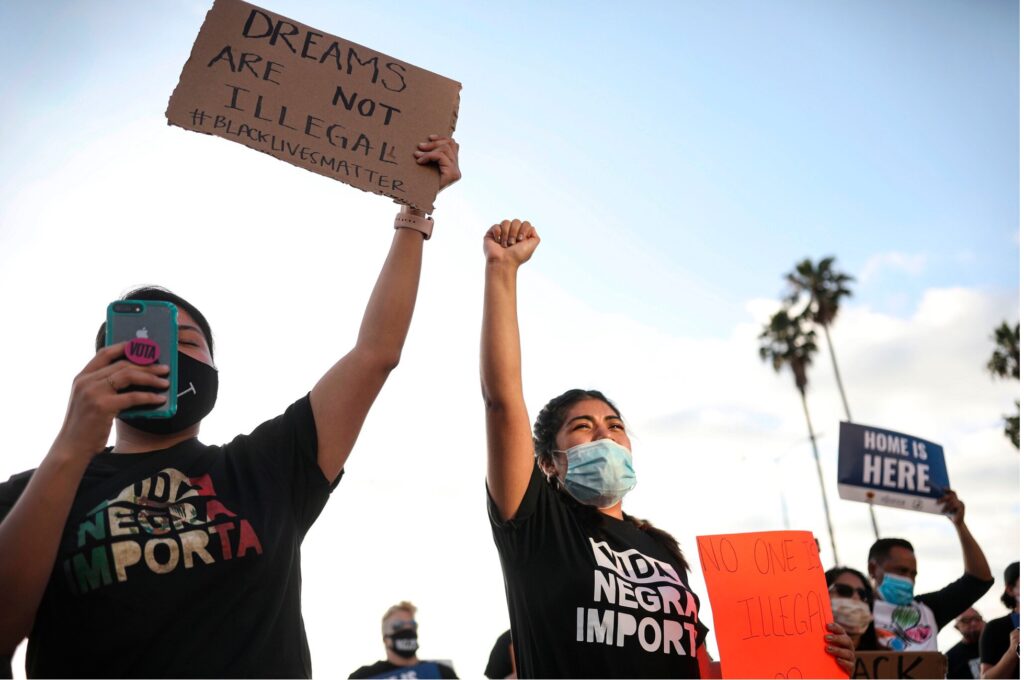
The uncertainty around the fate of DACA, the Deferred Action for Childhood Arrivals program, has produced an abundance of misinformation that has flourished online.
More than 580,000 DACA recipients have been living with uncertainty amid a six-year legal battle with the Trump administration. DACA has allowed eligible young immigrants without legal status to work and study without fear of deportation.
The legal back and forth has not only created an unpredictable situation for DACA recipients, but it has also become “a perfect breeding ground for bad actors to push this misinformation,” said José Muñoz, a DACA recipient and deputy communications director at United We Dream, the nation’s largest immigrant youth-led organization.
Whenever news about DACA arises, it is followed by “big peaks” of online chatter that become vehicles of “harmful narratives,” Muñoz said. Some of these narratives can lead people into “incorrectly assuming that they can’t renew their DACA, or that DACA has ended for whatever reason.”
Misinformation about DACA is often spread online by “well-meaning people” such as relatives and acquaintances who are either speculating about the legal challenges or “unknowingly sharing things that are untrue” on WhatsApp, Instagram, TikTok, Twitter, and private DACA-related Facebook groups.
While social media platforms have made information more available to people, they have amplified the viral nature of false information and unscrutinized sources. Advocates said there are also instances of “targeted disinformation” coming from scammers or others trying to take advantage of the uncertainty for monetary gain.
First-time DACA applicants who have been in limbo since 2021 are the most vulnerable to disinformation. These applicants won’t be processed until the ruling that closed DACA for new registrants is reversed.
Astrid Silva, a DACA recipient and an immigration activist who co-founded the nonprofit group Dream Big Nevada said she had received calls from many of these applicants and their family members who have seen Facebook posts falsely claiming that the processing of first-time applications can be expedited by paying an additional fee.
“When they check it, I’m the bearer of bad news because they had that hope that the $300 they paid was going to expedite their case and it wouldn’t be frozen anymore,” Silva said. “To me, that’s heartbreaking.”
These individuals created scams to target young immigrants and their families, including charging fees for DACA applications without verifying if the person was eligible and giving false information about recent changes and legal challenges to the program.
“The best antidote to misinformation is good information,” Muñoz said. “The sooner that you can have the right information out there, in ways that people can understand and share, the better you’re going to be equipped to push back against some of the disinformation.

Recent Comments